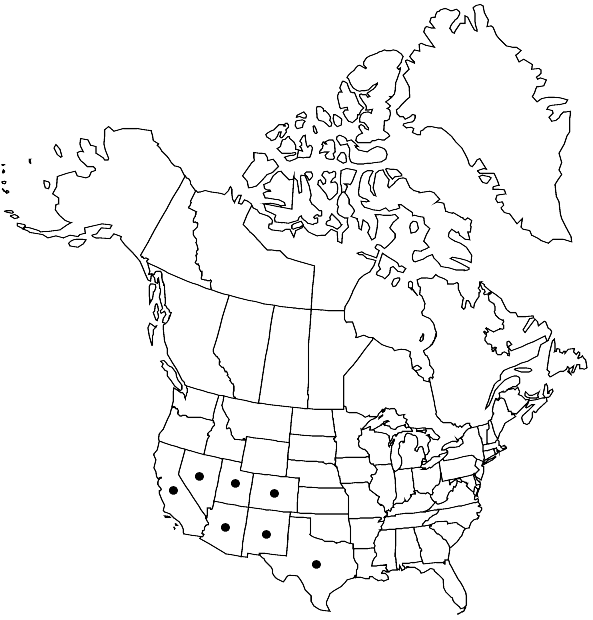Difference between revisions of "Crossidium aberrans"
Bryologist 27: 4, plate 2. 1924,.
FNA>Volume Importer |
FNA>Volume Importer |
||
| Line 49: | Line 49: | ||
|publication year= | |publication year= | ||
|special status= | |special status= | ||
| − | |source xml=https://jpend@bitbucket.org/aafc-mbb/fna-data-curation.git/src/ | + | |source xml=https://jpend@bitbucket.org/aafc-mbb/fna-data-curation.git/src/f6b125a955440c0872999024f038d74684f65921/coarse_grained_fna_xml/V27/V27_886.xml |
|subfamily=Pottiaceae subfam. Pottioideae | |subfamily=Pottiaceae subfam. Pottioideae | ||
|genus=Crossidium | |genus=Crossidium | ||
Revision as of 19:41, 24 September 2019
Plants 2–3.5 mm. Leaves lingulate, lanceolate or ovate, 0.7–1.4 mm, margins recurved from near apex to near base, apex rounded or emarginate, piliferous; costa excurrent, with an abaxial epidermis, filaments of 1–4 cells, cells subspheric, with several papillae per cell, terminal cell subspheric; cells of leaf base 13–51 µm, medial and distal cells 11–20 µm, smooth, with 1–2 abaxial papillae or on either side in distal cells. Sexual condition dioicous or cladautoicous. Seta 8–16 mm. Capsule urn ovoid-cylindric, 1.3–2 mm; operculum 0.5–1 mm; peristome strongly twisted, 650–980 µm. Spores spheric, ovoid or oblong, finely papillose, 9–13 µm.
Phenology: Capsule mature Jan–Jun(-Aug).
Habitat: Soil and rocks under shrubs, shaded banks or in open sites in dry washes
Elevation: moderate elevations (600-1500 m)
Distribution

Ariz., Calif., Colo., Nev., N.Mex., Tex., Utah, Mexico (Baja California, Sonora), n Africa.
Discussion
Crossidium aberrans is easily distinguished by the smooth or 1-papillose cells of the distal leaf blade and by the low filaments with subglobose-papillose terminal cells.
Selected References
None.